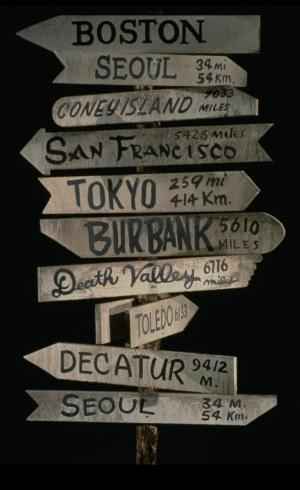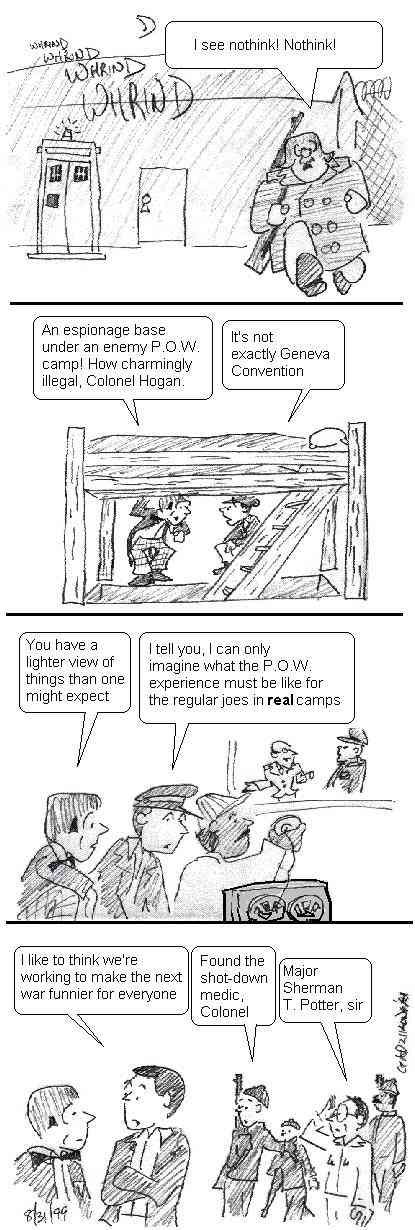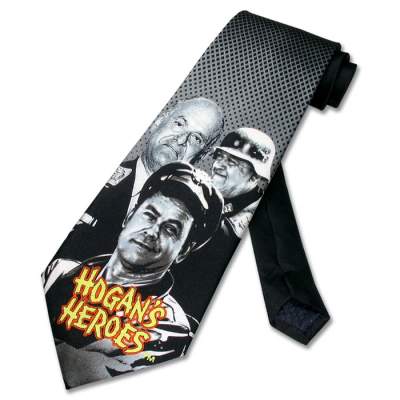

Hogan's Jews
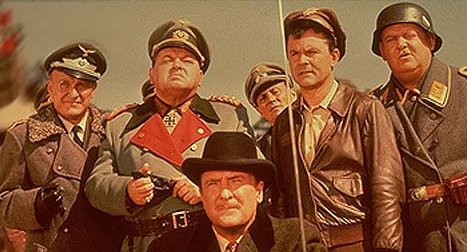
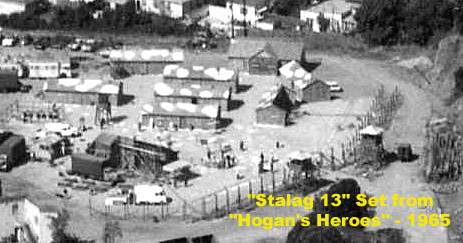
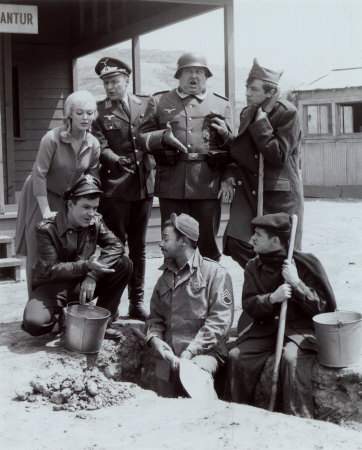
Robert Clary
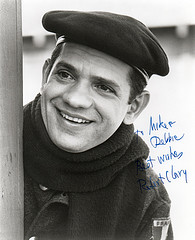
A human being is a human being. As long as we are nice to one another and treat each other as individuals, that’s all that matters.
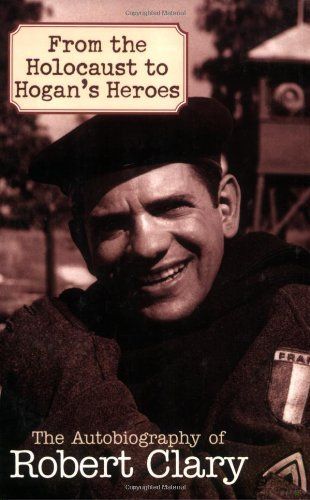
"After I found out that none of my family who was deported came back, my prayers ended, and so did my belief in God. What did my parents, who were extremely religious, my sisters and the rest of my family do to deserve such an end to their lives? Where is the justice? These gentle people who tried to make decent lives for themselves - why would God take them away so cruelly? To teach a lesson? Nothing has been learned from their deaths. Man's inhumanity to man still exists."
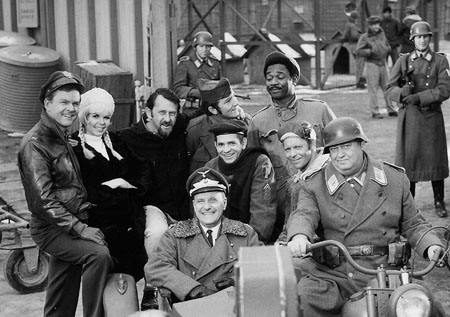
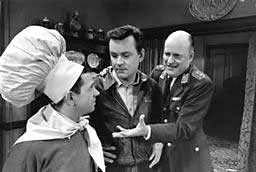
"When the show went on the air, people asked me if I had any qualms about doing a comedy series dealing with Nazis and concentration camps. I had to explain that it was about prisoners of war in a stalag, not a concentration camp, and although I did not want to diminish what soldiers went through during their internment’s, it was like night and day from what people endured in concentration camps."
When HH ended after six successful seasons, Clary began a memorable fourteen year run on the popular soap opera Days of Our Lives, portraying fictional Holocaust survivor Robert LeClair to rave reviews. In 1975, the critically-panned disaster film The Hindenberg was released, with Clary played the part of real-life circus performer Joseph Spah (erroneously credited as Joe Spahn), who had escaped the doomed airship by jumping out the window. Clary's performance was one was of the few highlight in a film that was, indeed, a disaster.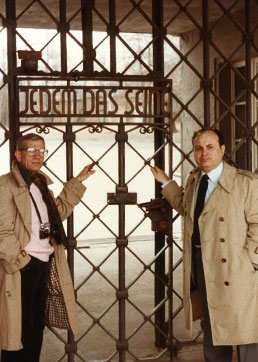
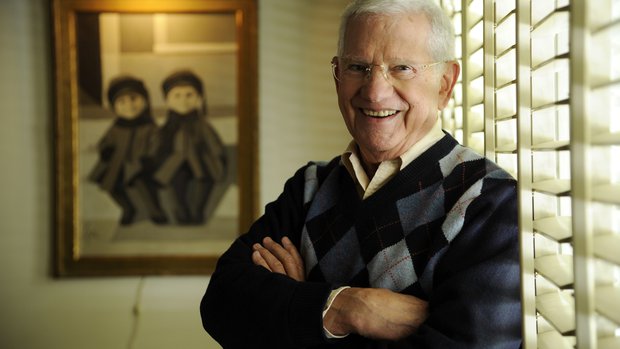
Werner Klemperer
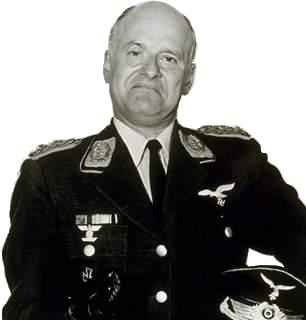
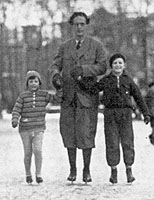

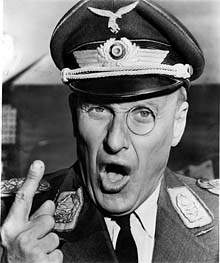
The only thing that they should, in my opinion, people should care about is whether they liked my performance or not. You know, I find it so difficult being a...as a matter of fact, little do people know that most of the leading members of the cast have a background that they would never expect them to have, and play the show they did. As an example, Robert Clary, the little Frenchman, when he was a very, very young man spent quite awhile...he was in a concentration camp. He had a number branded on his arm. The man who played Sergeant Schultz, his whole family was gassed. So a lot of us have historical events that took place in our lives. But it's so difficult for me to understand that a person would stop and say, 'God, how could he play a part like that?' My job is to be an actor, and as long as it has, you know, decent tastes, I shall portray anything, no matter how ugly it is or how pretty it is.
Despite the controversy, the show would become a smash hit, and Klemperer would be nominated for five Emmy's, winning two for Best Supporting Actor in a Comedy Series. They were honors well earned, as the character was almost entirely of his own creation. "The part of Colonel Klink became a part that people had a lot of kind of odd identification with," Klemperer would explain. "He was a little greedy, a little pompous, a little vain and a little insecure. All those things are very much part of our own personalities in many ways, so that's what made him fun."Yes, well you know we have a....when I say we, I include all of us, not just Americans but I suppose Canadians too....people have to me...it's very difficult to understand, but they have a habit of identifying characters, particularly characters that are supposedly well played and successful. They identify the person with the character and they can't do anything else. I mean, they feel that's Col. Klink, that's all there is. I think that's so strange, because they do know that we're all actors and we perform things that have not necessarily anything to do with us personally...For the first couple of years we had a choice to make. And that is, do I accept offers for roles that were not Col. Klink, but they were the same kind of character, or do I stay away from that in order to remove as much of the image as possible and continue my work, and I decided on the latter because I thought that was better for my career as an actor. I may have lost a bunch of money because of it, but it was worth the trip to me.
Unfortunately, when the show was cancelled in 1971, Werner's optimism seemed misplaced; the only movie and TV offers he received were for Klink-type characters, all of which he declined. He would continue to refuse such roles until, in 1975, the death of his famous father would allow him to pursue his love of music in his own right.Music influences every move I make, and always has. It is a very personal thing for me, and it may be of little use to other actors. But I have often called upon Stravinsky, upon Strauss and Prokofiev for guidance in timing and rhythmic propulsion and nuance. I probably could not have gotten through those six 'Hogan' years, those 175 television installments, without this special technical crutch.
Werner was a conductor with the Buffalo Orchestra, as a narrator with nearly every major symphony orchestra in the US, and was awarded a Tony nomination for his supporting role in the acclaimed 1988 revival of Cabaret.In a way I guess there's sort of a circle because of my Dad and my genuine love for classical music. It does....there's is something pleasing about that. But also as an actor, it's a medium that very interesting. In other words, to be able to work like a liaison between audience and orchestra and with the spoken voice create an atmosphere. That's an interesting acting challenge and more importantly, it keeps me in front of an audience in what's called a "live" actor meaning not film or tape, and that to me is the essence of my work anyway.
Werner continued to make many appearances in films and TV shows, even doing a voice-over as Colonel Klink in an episode of the Simpson's. In his 70's at the time, he reportedly had to be reminded how to play his famous character. Werner: "I actually swore to myself privately, that I was never going to do anything with that character again on television. But when they offered this little situation for me to do this voice in this special segment, I found it so incredibly humorous that I said yes, and I enjoyed it. It was fun." His wife, Kim Hamilton Klemperer: "He sometimes felt he was too identified with that character. But it had such a major impact on his career. He loved it when people stopped him on the street."John Banner
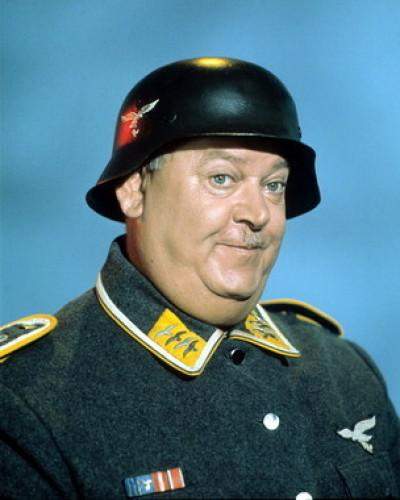
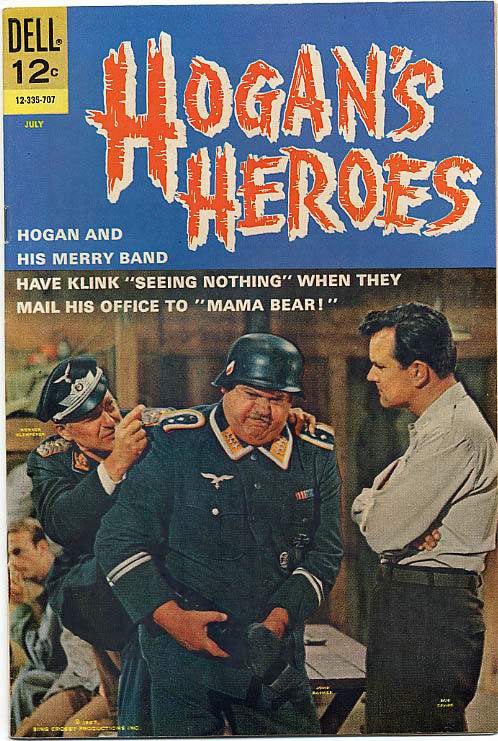
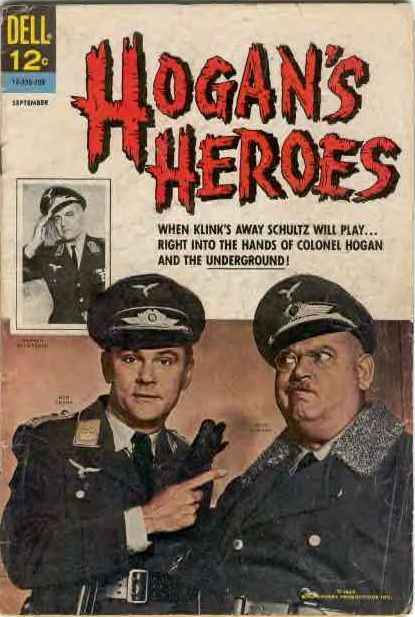

I am a Viennese by birth and I was born on the highest and holiest Jewish Day YOM KIPPUR. My father was an ardent socialist for many years. The interest of my mother was more in the entertainment field. She loved to go to concerts and to the theatre. These different interests - art and politics - more or less governed my childhood. The later years in my youth were influenced by the political change in Austria from the Austrian-Hungarian Monarchy to the first republic of Austria. Especially for my father it was a great change. He used to be a socialist and even a member of the socialist party. But then he became an orthodox Jew. In addition I could feel the growing Anti-Semitism in school as well as among my friends and comrades.
Leon was the eldest son of Samuel Aschkenasy and Malvine Susman. Samuel was politically-minded, a social democratic activist, later a Zionist. Malvine Aschkenasy encouraged her young son in his early interest in music and theatre. Between these two influences, it is only natural that Leon would find his way to the political cabaret theater (as a sort of anti-establishment stand-up comic with the Künstlerclub Paris-Vienne). Known as 'the man of a thousand faces,' Leon's skills as a character actor became legendary.We wanted to bring the political situation in Austria on stage. Naturally we could not do that without pointing to Austrian's northern neighbor Germany. In the years 1933 to 1938 fascist social systems became more and more presentable. With our artistic means we wanted to point out the dangers that Austria was exposed to in the embrace of Hitler, Mussolini and Horthy.
When Hitler took power in Germany in early 1933, Askin was unfortunate enough to have been playing a gig in Düsseldorf. He was hauled off the stage on March 11, 1933, and told not to return. On April 15, 1933, he was arrested by the SA, taken to a make-shift 'jail' and beaten senseless by an SS-Mann. In March 1938, Leon fled to Paris as Hitler rode into Vienna in triumph. Soon, France declared war on Hitler's Germany, and the young actor was eventually interned for a short time at the Meslay du Maine prison camp.During the first few months Mesley du Maine was a nightmare. We slept in the open air, sometimes it rained, we tried to cover ourselves with some old tents and in the evening we walked through thick mud to one of the dry tents where we made cabaret. One opera singer sang arias, but this whole period in the mud was pretty much of a nightmare...In the morning we received some very thin coffee. For lunch we had potato soup with a few pieces of meat in it, in the evening we had a very thin meat soup with some potatoes in it. But we were very enterprising. Out of old cans we made a shower and so we were very modern. When we stepped out of the douche we stepped out on a piece of wood so we had some comfort. Captain Bertrand, the commander of the camp, let us build a little theater and he borrowed from the nearby village some musical instruments, so we started an orchestra. We also cooked some coffee ourselves, but we had no spoons, so we used big nails. One day I received notice that my emigration was accepted and I could leave for America with the next transport. When I said 'Goodbye' to Captain Bertrand he said to me: 'I thought you love France, why are you quitting it now?' My answer was short and brief: 'Yes, mon Captain, I loved France but did France love me ?' He understood, stretched his hand out and said: 'Bonne chance, mon ami !' The goodbye from the international camp in Meslay du Maine was very sad.
Leon emigrated to the US in 1940, and immediately began work in the theater in the US, directing as well as acting. When America. entered WW2, Askin joined the Army Air Force as a public relations officer. He also became the chief editor of the AAF weekly Orientation Digest. It was during this time that Leon Askin became a citizen of the US, and changed his name from Leon Aschkenasy to Leon Askin.I was put in the Air Corps. I was never educated to serve in the military, but soon my activities in the American Air Corps became very interesting to me. 1944 I was put in charge to write a weekly digest, 'The Orientation Digest', which became one of the most outstanding military publications. It provided important information about the situation in Europe for the soldiers who were sent overseas...Perhaps I was a bit to courageous, one could also say a bit too impertinent. I wrote an editorial in which I attacked Sweden. A totally neutral state as not being so neutral because it delivered the little match-sticks to Germany...With hope and anxiety I went to the place where there was such a list, where I could find out places and time what happened to my poor parents. But all I could find out was that both my mother and my father were deported to the death camp of Theresienstadt on the 22nd of July 1942. I also was told that further places where my parents were transported to was the infamous Auschwitz and later Lublin where they were burned to death.
Upon his release, Leon founded the Veterans Memorial Stage in New York, before hooking up with 'The Players from Abroad,' Felix Gerstmann's émigré troupe. At the same time, he began teaching acting at the American Theater Wing and other venue's. In 1950 he hit Broadway in the comedy 'Twentieth Century' with Gloria Swanson and José Ferrer. In February 1952 Askin did his first film work for Hollywood, eventually playing in 40 feature films and over 130 television appearances, including his outstanding portrayals of Karl Marx and Martin Luther in Steve Allen's superior PBS series, Meeting of Minds. Askin also directed two episodes of the award-winning series. But most of the many roles this skilled character actor received were of 'heavies.'That is why I was known among my colleagues and to my producers as an accent actor and I was condemned, if one could say so, to wait for roles where a Russian, French, Arabian, Rumanian or Chinese accent is expected, but no American. I never became a superstar, yet in the TV series 'Hogan's Heroes' I played the starring part of General Burghalter. I also played a very important part in the first Cinemascope film 'The Robe' with Richard Burton. I had the great chance to play in this film. I played the traitor Abidor and I also was in the 'Virgin Shot', the very first scene, of this important first Cinemascope film.
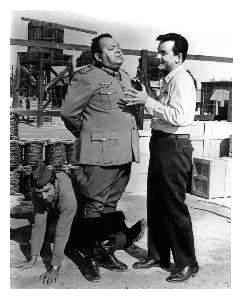
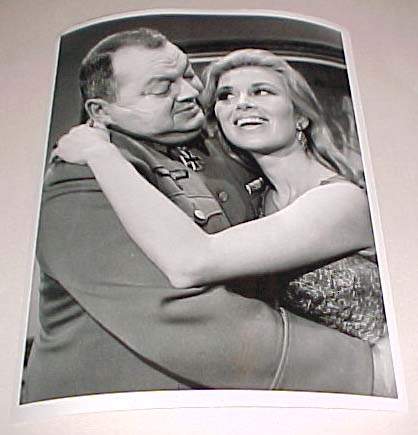
The journalists in Vienna and Austria and also in Germany call me a legend. I'm a man who lived through difficult times. I'm a man who survived the monster of all times, Adolf Hitler and I'm still, at my high old age of 93, successful in my profession and that is the pride with which I live and survive.
Askin was a member of the Oscar Selection Committee of the Academy of Motion Pictures. He died on June 3, 2005, in Vienna.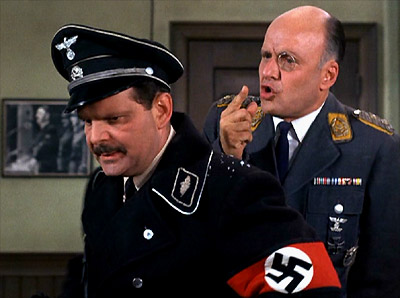
Twitter: @3rdReichStudies FB: Horrific 20th Century History
 >
>
 >
>
Featured Sites:Austria: The Other GermanyThe Last Days of the Third ReichAdolf Hitler: The First Super-VillianThird Reich History: What Happened Today?Countdown to Infamy: Timeline to Pearl HarborBiographical Timeline: of the Infamous Adolf HitlerCountdown To WW2: August 22 - September 1, 1939The Nuremberg Nazis: Detailed, Documented BiographiesWunderwaffen: Hitler's Deception and the History of RocketryMain Sites:
Adolf Hitler: The VolkswagenAdolf Hitler: The Fuehrer's MercedesAdolf Hitler: Mein Kampf ExaminedIn the Shadow of Frederick the GreatHitler's Battleship: Sink The Bismarck!Non-Fiction Comics: Military PeriodicalsHistory of Olympic Boycotts: From Berlin to BeijingHogan's Jews: 5 Cast Members Were Jews; Their Stories>


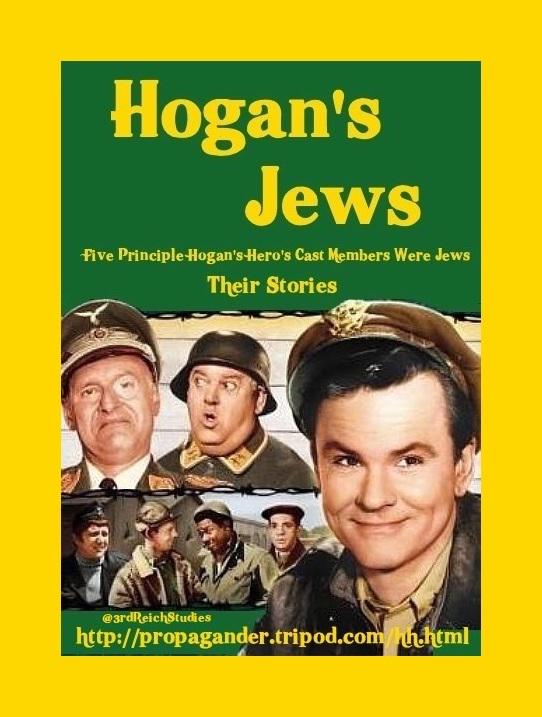
















Disclaimer: The Propagander!™ includes diverse and controversial materials--such as excerpts from the writings of racists and anti-Semites--so that its readers can learn the nature and extent of hate and anti-Semitic discourse. It is our sincere belief that only the informed citizen can prevail over the ignorance of Racialist "thought." Far from approving these writings, The Propagander!™ condemns racism in all of its forms and manifestations.
Fair Use Notice: The Propagander!™may contain copyrighted material the use of which has not always been specifically authorized by the copyright owner. We are making such material available in our efforts to advance understanding of historical, political, human rights, economic, democracy, scientific, environmental, and social justice issues, etc. We believe this constitutes a "fair use" of any such copyrighted material as provided for in section 107 of the US Copyright Law. In accordance with Title 17 U.S.C. Section 107, the material on this site is distributed without profit to those who have expressed a prior interest in receiving the included information for research and educational purposes. If you wish to use copyrighted material from this site for purposes of your own that go beyond 'fair use', you must obtain permission from the copyright owner.

